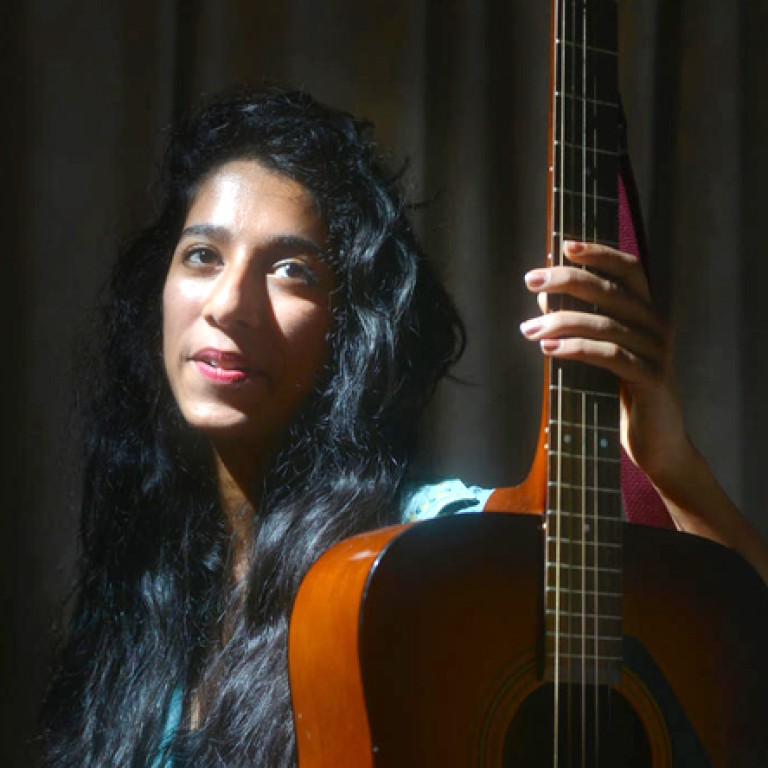
Hong Kong K-pop contestant, 14, left in tears after organisers offer plastic surgery
Fourteen-year-old finalist in Korean pop talent competition was advised to go under the knife for a chance to break into the industry
Aspiring singer Shimali De Silva was surprised when she got through to the finals of an international Korean pop talent competition last year.
Her surprise quickly turned to shock, however, when organisers of the K-Pop Star Hunt took her to see a plastic surgeon, who told her, "You're 14, but you look 30", and proposed major changes to her appearance.
"They told her she was too dark and her nose was not proper," the Hong Kong teenager's mother Ruanthi recounted to the last week.
Today, as dozens of young Hongkongers audition for this year's Star Hunt, Shimali is busy rehearsing for her role as Diana Morales in the Youth Arts Foundation's production, , confident and self-assured.
But barely a year ago, the Australian-born Sri Lankan girl's self-esteem was in shreds. She was just 13 when she won the Hong Kong leg of the Star Hunt, and was, alongside 15 other finalists from Asia, flown to Seoul last November, where a television crew filmed their efforts.
Two weeks into the finals, the contestants were told they would be given a "surprise". Shimali, who had just turned 14, was the youngest of the group.
The "surprise" turned out to be an individual consultation with a plastic surgeon. Shimali, now 15 and a Year 11 pupil at Sha Tin College, said: "We weren't told what we were doing, but we quickly caught on, flicking through the catalogues of eyes, noses and boobs.
"The doctor brought out this terrible mugshot and said to me, 'You're 14, but you look 30'. He pointed out the curvature of my forehead, the ratio of my nose to my chin, all this stuff that I hadn't even thought about.
"I was trying not to be affected by it, but as a 14-year-old, people tell you that the way you look is important if you want to break into this industry; that sunk in and I started tearing up.
"I told the doctor I appreciated his comments but that I was opposed to the idea of changing your appearance as a prerequisite to success in your career.".
Immediately after the consultation, Shimali called her mother, crying from the toilet in the doctor's clinic.
"I felt devastated, violated and helpless, so I took a flight the next day to get her back from Korea," Ruanthi said.
"We teach our children to be proud of who they are, that they should be judged not by the colour of their skin but by their good actions. Suddenly, my daughter was told that her skin, her nose, her face are not right; my heart was breaking."
Shimali was eliminated in the next round of the competition, but she does not believe her stance against plastic surgery played a part. Some contestants opted for temporary cosmetic procedures, such as nose fillers, which last about two years.
Ruanthi, like her daughter, understood there were cultural differences. Overall, Shimali enjoyed the experience, she said.
"She has put it behind her now, and it was a learning experience. The organisers didn't mean to harm the contestants; they thought they were doing them a favour," the mother said.
Shimali added: "I don't think there was a racial element to it; it's just that they perceive beauty as having light skin."
A spokeswoman for Channel M, a K-pop television channel and organiser of the contest, said the visit was "part of the programme for the contestants to understand K-pop culture". "Channel M did not and would not request K-pop Star Hunt contestants to undergo any plastic surgery treatment for the programme," she said.
